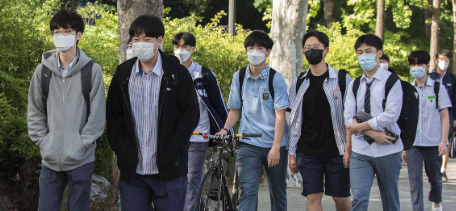Navigating Cultural Bridges: The Korean Community Abroad

In the vast expanse of cultural diversity that shapes our world, the Korean community abroad presents a fascinating case study of unity, language, and the evolving nature of international integration. Drawing on personal insights from individuals across the globe, we delve into why Koreans, like many other communities, often choose to associate closely with one another, especially in foreign lands.
The Comfort of Familiarity
One of the most poignant reasons behind the close-knit nature of Korean communities abroad stems from a quest for familiarity and comfort in an alien environment. A Singaporean businesswoman and lecturer, with an extensive international background, shares her observations from her time in the United States. During her studies, she noticed that Korean students, among others, tended to cluster together, a trend attributed to the language barrier and a lack of confidence in English-speaking settings. This behavior wasn’t exclusive to Koreans but was prevalent among various international student groups, highlighting a universal search for comfort and security in the familiar.
The Evolution of Language Proficiency
Over the years, the narrative around the Korean community and language proficiency has seen significant evolution. The businesswoman notes a marked improvement in English language skills among Koreans she has encountered in recent years, especially the younger generation. This change is largely due to more Koreans studying abroad and a deliberate effort to master English, recognizing its importance in international business and communication. Such efforts reflect a broader shift in the Korean community’s approach to global integration, balancing the preservation of cultural identity with the necessity of navigating a predominantly English-speaking world.
Cultural Empathy and Connection
A native Korean’s perspective sheds light on another dimension of this phenomenon: the challenge of cultural and linguistic barriers in forging meaningful connections. Despite a desire to engage with diverse cultures, concerns over language proficiency and cultural misunderstandings often deter Koreans from stepping outside their comfort zones. However, the same individual also emphasizes the inherent cultural empathy and understanding present within the Korean community, making it a safe space for self-expression without the fear of judgment or miscommunication.
The Path Forward
The stories shared by these individuals underscore a common thread: the intrinsic human tendency to seek out the familiar amidst the unknown. However, they also highlight a conscious effort among Koreans, particularly the younger generation, to bridge the gap between their cultural heritage and the global stage. This balancing act between maintaining close community ties and embracing the broader world is not unique to Koreans but resonates with diaspora communities worldwide.
As the world becomes increasingly interconnected, the journey of the Korean community abroad offers valuable insights into the complexities of cultural identity, language, and international belonging. It reminds us of the importance of empathy, open-mindedness, and the continuous effort to build bridges across cultures, ensuring that the global community is enriched by its diversity rather than divided by it.











